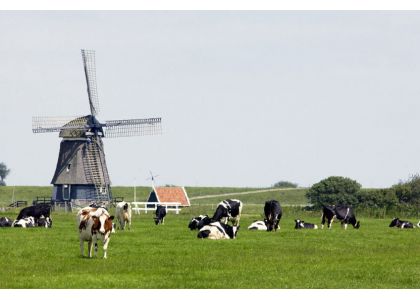
Researchers are looking into more effective ways to monitor greenhouse gas emissions in grazing cattle.
Scientists at Scotland’s Rural College (SRUC) have done extensive studies into the emissions produced by cattle housed indoors, but restrictions in technology means there is relatively little data on the amount of methane produced by animals being reared outside.
According to a news release, SRUC received £250,000 (€297,000) of funding from the Department for Environment, Food and Rural Affairs (DEFRA) as part of a collaborative research project with European partners. Following this, SRUC has teamed up with the University of Strathclyde to develop and adapt existing precision livestock farming technology to mitigate and monitor methane production.
This includes animal-mounted activity sensors and systems for monitoring location, feeding behaviour and weight, to use with cattle outdoors.
The news report by SRUC further added that around 90% of Scotland’s cattle are outdoors for significant parts of the year, and it is hoped the GrASTech project will ultimately identify the best options for managing grassland and grazing animals to reduce methane emissions.
The GrASTech project will face a number of key technical challenges, including the miniaturising of equipment, battery technology to permit long lifetime measurement periods, data transmission and capture for remote grazing environments.
UK farming minister, George Eustice MP said: “Researchers in the UK are at the forefront of innovative solutions to tackle climate change and help us meet our world-leading target of net zero emissions by 2050.
“We are proud to be sponsoring this work by Scotland’s Rural College, which will bring forward new technologies to support farmers across all four corners of the UK rise to the challenge.”
Professor Richard Dewhurst from SRUC said: “One of the key approaches for reducing methane emissions is to increase the health, fertility and longevity of animals. By adapting technologies used to monitor and manage these things for housed cattle, we expect to deliver similar benefits for grazing cattle.”
Professor Craig Michie from the University of Strathclyde added: “Creating a battery powered methane sensing unit with the required performance for grazing cattle builds on our expertise both in advanced optical sensors for hostile environments and the pioneering innovation of neck-mounted collars that identify key conditions of individual animals. “
Methane emitted from livestock is responsible for around 5% of UK total greenhouse gas emissions and the UK government is targeting net-zero emissions by 2050.
The project is due to run until September 2021.